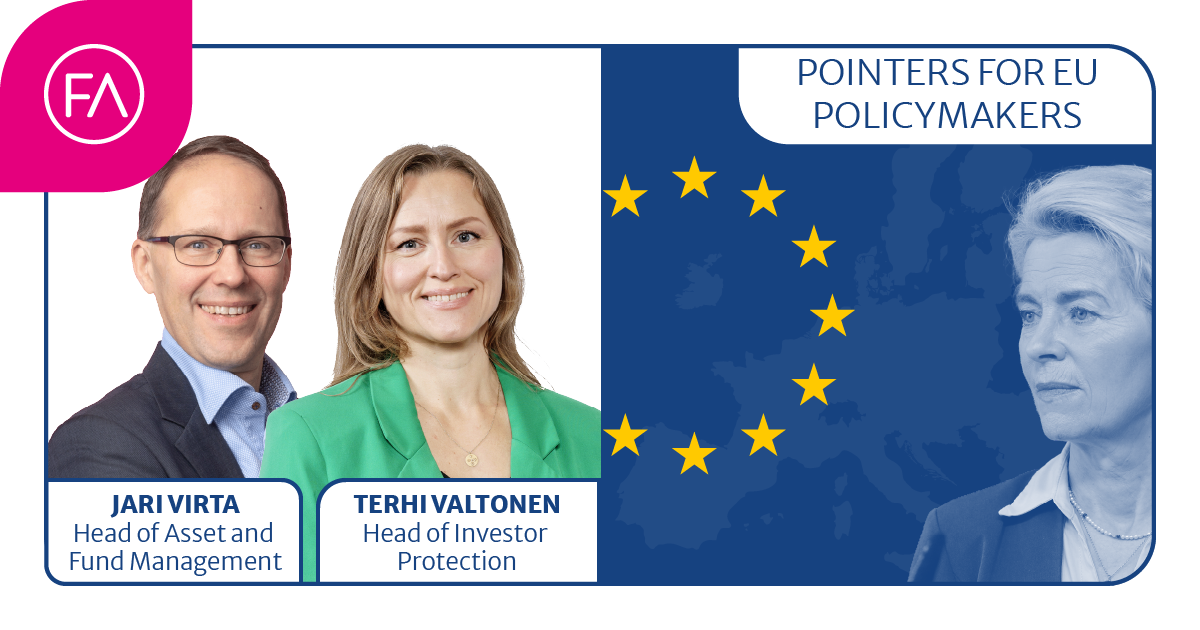
Retail investors – individual, non-professional investors who invest their own money – probably do not realise how significant they are for the economy. All the investments they make in stocks, bonds, funds and other investment products feed essential capital into businesses and the public purse. This capital fuels not only the success of individual companies but the development of the entire economy.
It is no wonder then that the EU also wants to foster retail investment and economic growth in any way it can. Retail investment is needed to enhance the EU’s competitiveness as well as to finance the green and digital transition. It also provides better profit for consumers than a regular savings account.
Encouraging retail saving and investment is one of the key objectives in the EU Capital Markets Union (CMU) action plan. The plan comprises several legislative and non-legislative projects aimed at harmonising capital markets regulation, attracting private investment into the EU and enabling the more efficient use of the EU’s investment potential.
The EU Retail Investment Strategy (RIS) is a regulatory project focused on promoting retail investors’ participation in the financial market, improving the transparency of the costs of investment and enhancing investor protection. These objectives are supportable – as long as the right means are used.
We want EU policymakers to keep in mind that effective investor protection does not require heavy regulation: simpler requirements can be more efficient in encouraging European consumers to invest their savings. There is no point in putting together a full plate armour if a helmet and knee pads are enough.
If implemented, the negotiated RIS solutions will increase administrative burden for both financial sector companies and retail investors and also complicate customer journeys without bringing any additional value. The solutions introduce several new, even overlapping tests and assessments and serve to further increase the already swelling flood of information provided to customers.
Complicating the sales process with too much information can diminish the appeal of investing in the eyes of ordinary customers. Retail investors cannot be expected to successfully navigate an overwhelming amount of information that drowns out what is relevant. It may also drive investors towards easily available high-risk products that are outside the scope of regulation and not supervised as financial sector products.
======
Although regulatory enthusiasm is often well-intentioned,
it sometimes results in complex frameworks where
individual pieces begin to obstruct each other.
======
During any drafting process, it would be wise to pause every once in a while to reflect on the purpose and desired outcome of the regulation. Although regulatory enthusiasm is often well-intentioned, it sometimes results in complex frameworks where individual pieces begin to obstruct each other. The CMU action plan and the regulation on retail investor protection are at risk of ending up exactly this way. Overly complicated, inefficient and expensive regulatory solutions will do nothing to promote the CMU’s key goal of encouraging European investment; on the contrary, they will create further obstacles for it.
It is paramount to ensure cost-efficient sales processes that enable Europeans to make secure, easy investments and create both personal and collective wealth. Instead of Union-level regulation, retail investor participation in the capital markets is best supported primarily through national measures. This will require promoting financial literacy and a culture of saving and investing. EU member states should also be required to implement predictable taxation that encourages investment.
Still have questions?
|Contact the columnists
Looking for more?
Other articles on the topic

Less than a third of Finns believe they can live on statutory pension alone – Chair of Finance Finland’s Board Sara Mella: Pension saving also supports economic growth

The EU needs to build a more favourable investment climate

European financial sector: The Commission’s objective to streamline regulation is good – the same approach must be applied in the Retail Investment Strategy

Europe needs retail saving, investing and opportunities for wealth creation – Finland is undermining voluntary pension saving






